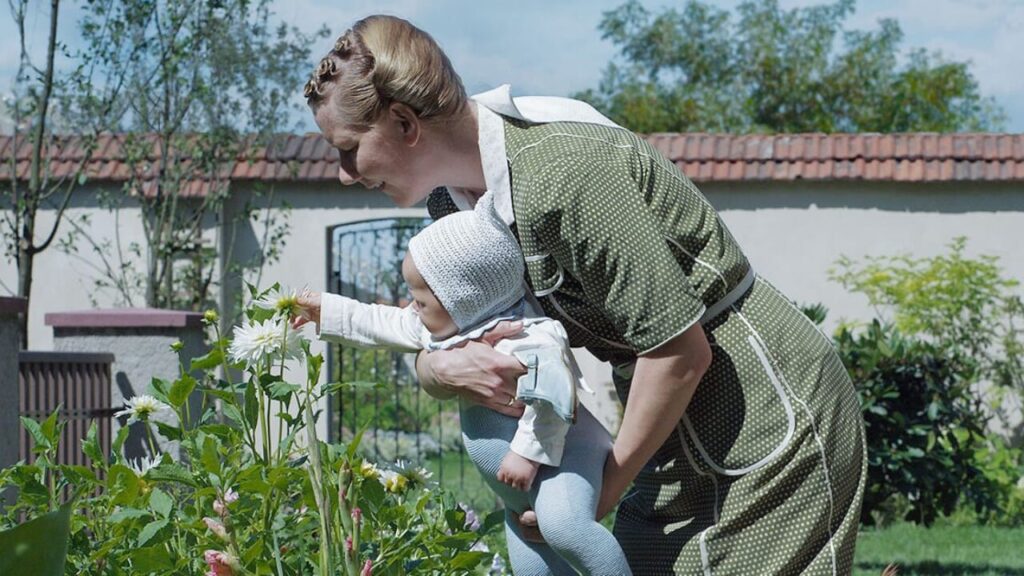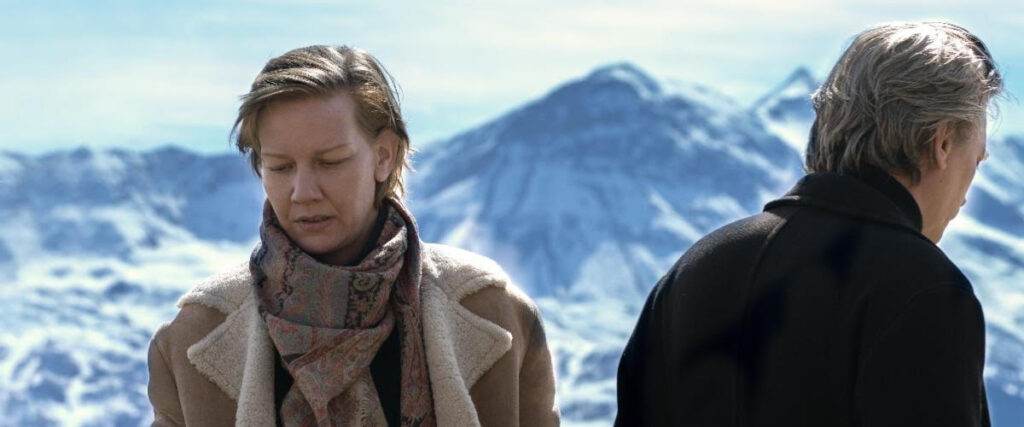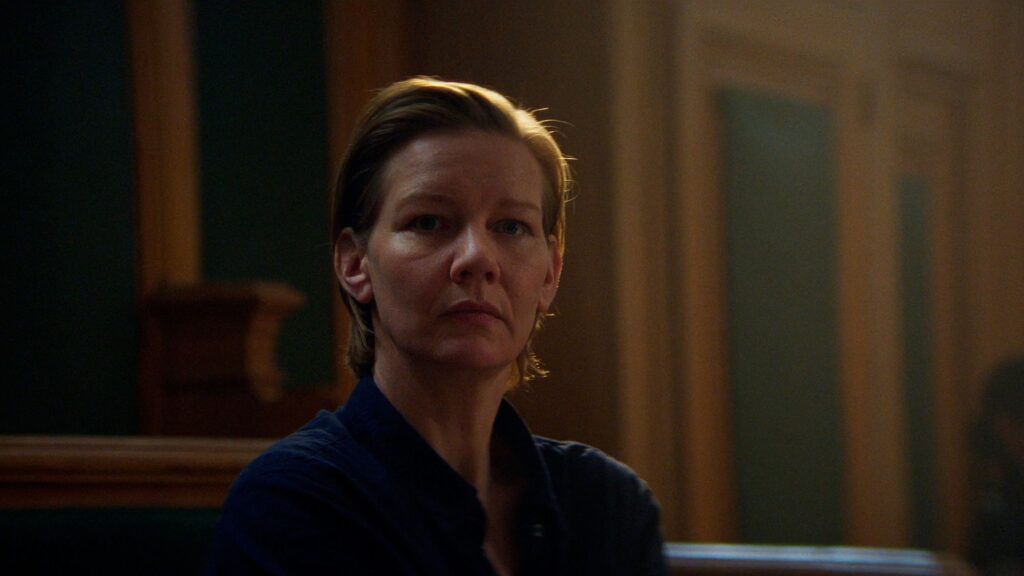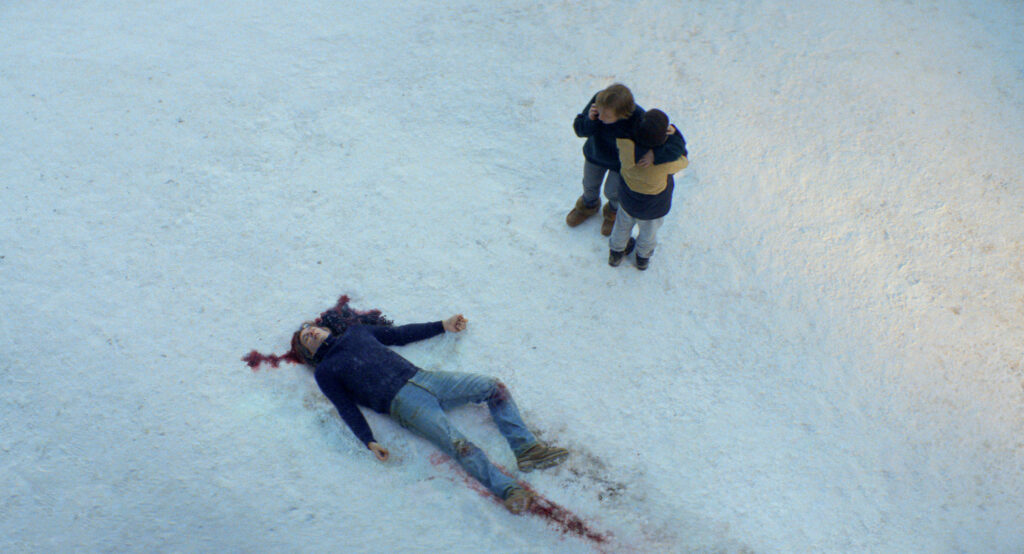
Jonathan Glazer’s The Zone of Interest is an exceptionally original and well made, intentionally unsettling and, ultimately, unnecessary film.
We first meet Hedwig (the great Sandra Huller), Rudolph (Christian Friedel) and their five children in 1943 on an idyllic riverside picnic in the woods. They return to their spacious villa and put the kids to bed (Hedwig firmly and Rudolph gently). When Hedwig and Rudolph are in bed themselves, they ignore what sounds like shouting and the barking of guard dogs nearby.
The next morning we see that Rudolph is the commandant of Auschwitz and the family home is LITERALLY next door to the walls. Hedwig, like any hausfrau, hangs laundered sheets to dry, while her groceries are delivered by death camp slave labor.
As the family’s domestic life goes on, the soundtrack slowly becomes louder and includes more shots, screams and the drone of industrial extermination. We see more of the skyline, with smokestacks spewing fire and ash.
Glazer slips in little matter-of-fact horrors like perverse Easter Eggs. Hedwig brags to her gal pals about furs and other luxuries she has stolen from dead Jews. Hedwig seems meaner than Rudolph and coldly utters what must be the most terrifying threat ever made to a maid.
Having married a guy who has risen to be a big boss, Hedwig is living her best life, with servants and plenty of perks, like Italian spa vacations. She has the very disturbing capacity to shut out the hellish enterprise over her back fence, replete with the sounds, smells and images of workaday genocide. Glazer has made a Holocaust film without any images from inside the death camp; the Holocaust is just kind of leaking over the fence.
The Martin Amis novel that Glazer adapted into the screenplay did not name the commandant and his wife, but Glazer uses the names of the actual historical figures: the real Rudolph and Hedwig Hoss. When one reads about the real Hoss, you can see the care with which Glazer depicts him, down to his distinctive haircut, the kids’ names and Hedwig’s dream of spacious gardens (She’s the true believer in lebensraum.)
Rudolph is not a hate-spewing frothing maniac, more of a Company Man go-getter. One can imagine a 1960s version of Rudolph driving to surpass this quarter’s IBM sales goal. Yet, this is the man who admitted to murdering 2.5 million people; the other million, he said, died of disease and starvation.
The Zone of Interest is an extraordinary illustration of the banality of evil. But why do we need it? Hannah Arendt’s recognition that Hitler’s mad horrors were not carried out by monsters, but by the ordinary and mediocre, has been generally accepted for decades. If Hitler were obsessed with dairy production or ceramic art, thousands of workaday Nazis would have been content to do just that, instead. The logical conclusion is that the Holocaust doesn’t need a maniac to happen again, just millions of people who obey the maniac. After all, it was ordinary-looking American companies that vied for Trump Administration contracts to put migrant babies in cages, not some survivalist militia.
It’s a familiar truism, and, to my sensibilities, not worth the unpleasantness of sitting watching these unpleasant people and their unthinkable deeds. That being said, this is anything but a slog. The Zone of Interest is captivating throughout (not unlike a vehicular crash).
This is only Glazer’s fourth feature in 24 years: Sexy Beast (2000), Birth (2004), Under the Skin (2013).
The Zone of Interest has been nominated for multiple Oscars, including Best Picture.



